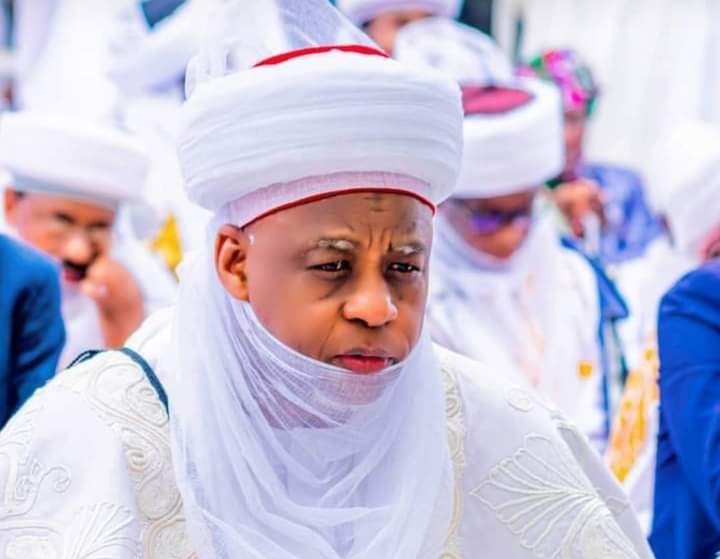The Muslim Rights Concern (MURIC) has raised concerns over an alleged plan by Governor Ahmed Aliyu of Sokoto State to depose the Sultan of Sokoto, Alhaji Muhammad Sa’ad Abubakar III. This alarm was sounded by the Executive Director of MURIC, Prof. Isiaq Akintola, in a statement released on Monday.
This development arises amidst the ongoing controversy and tension surrounding the recent deposition of several monarchs in Kano State. Earlier, Governor Aliyu had deposed 15 traditional rulers for various offenses.
In his statement, Akintola emphasized that Nigerian Muslims reject any notion of deposing the Sultan. He warned that “feelers in circulation indicate that the governor may descend on the Sultan of Sokoto any moment from now using any of the flimsy excuses used to dethrone the 15 traditional rulers whom he removed earlier.”
MURIC has advised Governor Aliyu to proceed with caution, stressing the unique dual role of the Sultan as both a traditional and religious leader whose influence extends beyond Sokoto to encompass the entire Nigerian Muslim community. Akintola stated, “The Sultan’s stool is not only traditional. It is also religious. In the same vein, his jurisdiction goes beyond Sokoto. It covers the whole of Nigeria. He is the spiritual head of all Nigerian Muslims.”
Akintola further warned that any attempt to tamper with the Sultan’s position would provoke a significant backlash from Nigerian Muslims. “Any governor who tampers with the stool of the Sultan will have Nigerian Muslims to reckon with because the Sultan combines the office of the Sultan of Sokoto and that of the President General of the NSCIA.”
Reflecting on past events, Akintola recalled how a military governor, Col. Yakubu Muazu, deposed Sultan Ibrahim Dasuki on 20th April 1996, exposing vulnerabilities in the leadership structure that Nigerian Muslims have since had to live with. He cautioned that repeated interference with the Sultan’s authority could force Nigerian Muslims to reconsider their acceptance of traditional rulers as leaders, suggesting a potential shift towards having only Islamic scholars as the President General of the NSCIA.
“For the avoidance of any doubts, Sultan Muhammad Sa’d Abubakar is not only the Sultan of Sokoto but the Sultan of the Nigerian people. His performance and style of leadership have warmed him into the hearts of Nigerians,” Akintola said. He warned that further actions against the Sultan could lead to an irreversible change in leadership dynamics, diminishing Sokoto’s historical leadership role.
MURIC has called on the Sokoto State House of Assembly to amend the state’s chieftaincy laws to protect the Sultan’s position. Specifically, Akintola urged for the addition of the phrase “except the Sultan of Sokoto” to Section 6, Cap 26 of the Laws of Northern Nigeria, which currently empowers the state governor to depose emirs, including the Sultan.
“We urge Northern elites and Islamic scholars based in the North to intervene before it is too late. This is the time to lobby the Sokoto State House of Assembly and the governor himself. If the chieftaincy laws of Kano State can be repealed within 24 hours, nothing stops that of Sokoto State from being reviewed in favour of immunity for the office of the Sultan in a single day to save Nigerian Muslims from humongous embarrassment,” he added.
The Sokoto State Government has not yet responded to MURIC’s allegations. However, it previously indicated plans to amend Section 76 of the local government and chieftaincy law to align with current practices. Presently, while the Sultanate Council has the authority to appoint district and village heads, in practice, it only provides recommendations, with the governor making the final appointments.
Nasir Binji, the state’s attorney-general and commissioner for justice, clarified that the proposed amendment aims to synchronize the legal framework with customary procedures. Under the proposed changes, the Sultanate Council would retain the power to recommend candidates, while the final appointment authority would be vested in the governor.
